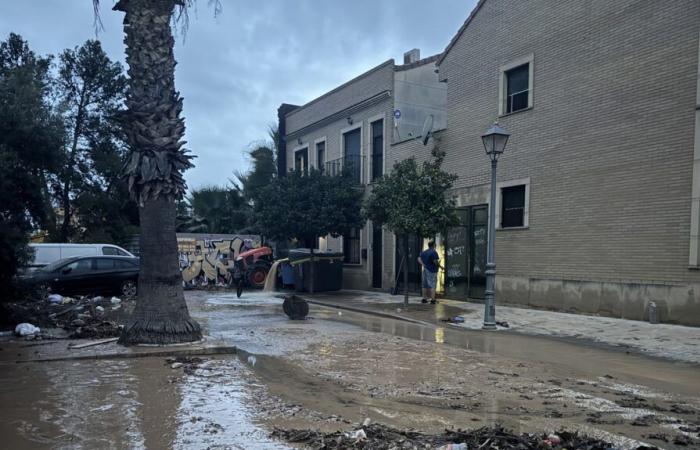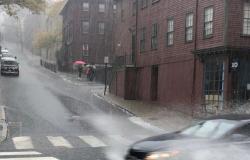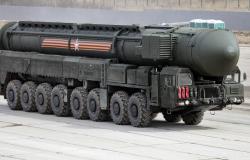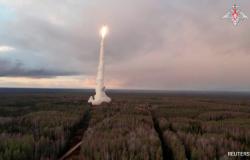While there are still fears of finding the bodies of dozens of missing people, the extent of the damage in the Valencia region is forcing the victims to help each other. A great trauma is going through the inhabitants, in particular those of the town of Castellar, in the suburbs of Valencia.
There are still several dozen missing, according to the Spanish authorities. Floods in the southeast of Spain, in the Valencia region, have killed at least 158 people. A little more than 72 hours after the rains which fell on the territory, landscapes of desolation are witnessed by tens of thousands of victims, with as many buildings to rebuild. Enough to cause a certain trauma for all the inhabitants, obliged to help each other given the extent of the damage.
Little by little, astonishment gives way to anxiety. As emergency services clear the streets and neighborhoods, residents are just beginning to clear away everything that the passage of water has destroyed or made unusable. In Castellar, a town of around 7,000 inhabitants south of Valencia, Mati Monbarral came to empty the ground floor apartment where she lived throughout her childhood. “There’s nothing left but water and mud inside. The water passed here and my mother was alone at the time.”she notes.
Sorry for all those people who died in the disaster, this woman says she is lucky that no one died or disappeared in her family. She nevertheless says she has lost everything: “You can see everything around me that has to go. I didn’t save much here, neither the washing machine nor the furniture, so we have to throw everything away.” regrets the resident.
In the streets of Castellar, we are working hard to dry out the town a little. Officers scrape the muddy water toward the removed manhole covers. Manuel Jop, in his sixties, himself installed a pump connected to a tractor to recover his garage. “Here, there are three meters deep. We are trying to get the water out with a pump. There is barely a meter of water left.”
The pain of the residents is still raw, like that of the direct witnesses of the tragedy. These survivors, taken care of in a gymnasium in downtown Valencia, confide, like Aaron “feel bad“. With reddened eyes, this worker was on the highway, a passenger on a bus at the time of the tragedy. Wounded in the ankle, he says he saved a young woman from the power of the waves.
“I couldn’t help more people. I feel bad because I don’t have a home, I don’t know where to go. And because I remember everything…”
Aaron, survivor of the floods in Spainat franceinfo
Aaron slips having people swept away by the muddy waters. He says, since then, overcome by a feeling of helplessness: “For now, I prefer that those who suffered more than me are taken care of. I hope to get better, and sooner or later I will talk to a psychologist or doctor about what I saw…“
Around him, like the survivors who were up to 300 in this small gymnasium in Valencia at the height of the crisis, the inhabitants of the city, spared. Many of them showed solidarity by providing help. “So, in all of this, there are children’s and adults’ shoes, I also brought milk, boxes of lentils…“, smiles Laura, who came to talk with the victims.
“I am a teacher. When we go back to school, I’m going to talk about all that, about how life has changed, how disasters can happen to us and our children… We have to work on this psychological aspect“, assures the young woman for whom this disaster resonates even more particularly. After the floods of 1957, her own parents had to leave the center of Valencia and their accommodation became uninhabitable.
At the same time, everyone keeps an eye on the latest reports, the weather and repetitive alerts, “let help pass” urges a message from the authorities on all cell phones several times during the day. “The situation creates anxiety, doesn’t it?” Manuel asks, worrying about not knowing what might happen in the coming days. “We are also concerned about insurance, about what the authorities will decide”.
The other main uncertainty remains the rain, feared in the coming days, with the fear of new victims and of reducing these first cleaning operations to nothing. The episode is not over, recalled Spanish Prime Minister Pedro Sánchez.






